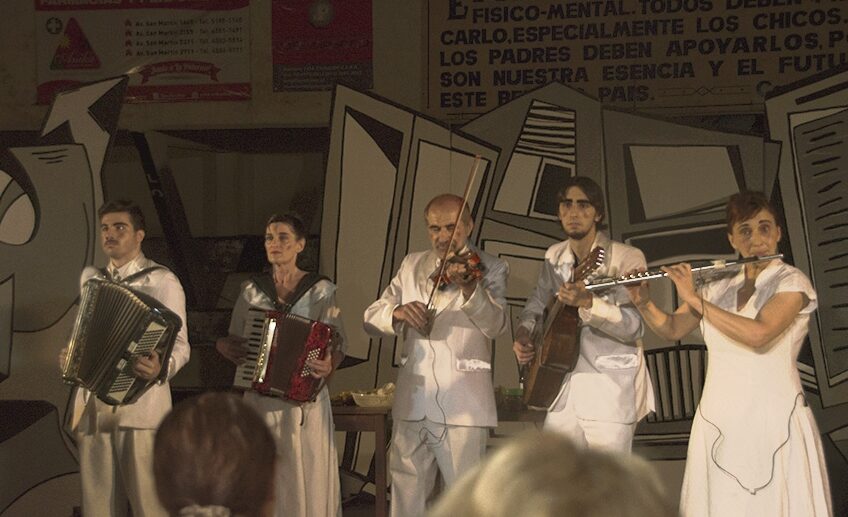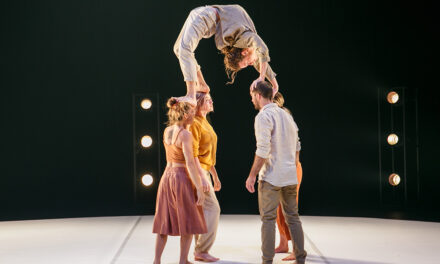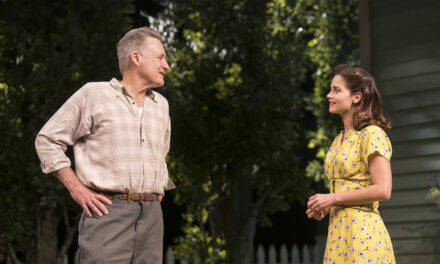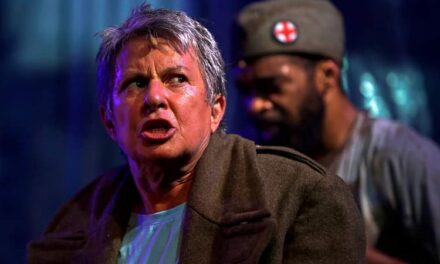The communitarian theatre group Matemurga, from Villa Crespo (Buenos Aires), closed the 2016 season with the last show of their immersive play, Injured Neighborhood. The city street was closed to traffic, and the stage, the lights, and sound were installed. There were chairs and a grandstand built for the public. The friendly environment was evident. Children were running around, grandparents were with their grandkids, and the followers of this theatre movement were there for the closing of the 2016 season. Behind the grandstand were grilles where you could get a sausage sandwich and a drink, as well as other types of food: an authentic rite of theatre, with all the ingredients of a celebration.
The play is about memory, perhaps the most insistent subject of the productions of the current Argentinean communitarian theatre. The plot involves the preparation of an important dinner in which the different communities that live in Villa Crespo share their specialties: spaghetti from the Italian community, sausages and cheese from the Spanish community, and potato knishes from the Jewish community. The different cultures celebrate on stage what was supposed to be the return of an old neighbor who had disappeared from the barrio long ago. Of course, the neighbor they remember lives only in their imaginations and never shows up, but the utopia of being together in the neighborhood is accomplished through the dinner celebration.
The questions repeatedly asked while they looked at an imaginary, empty old house are “Is he there?” “Is he really gone?” “Is he coming back?” These questions are followed by their descriptions of movements as happening in the house but present only in their memories; those movements are supposed to reveal the presence of the absent neighbor.
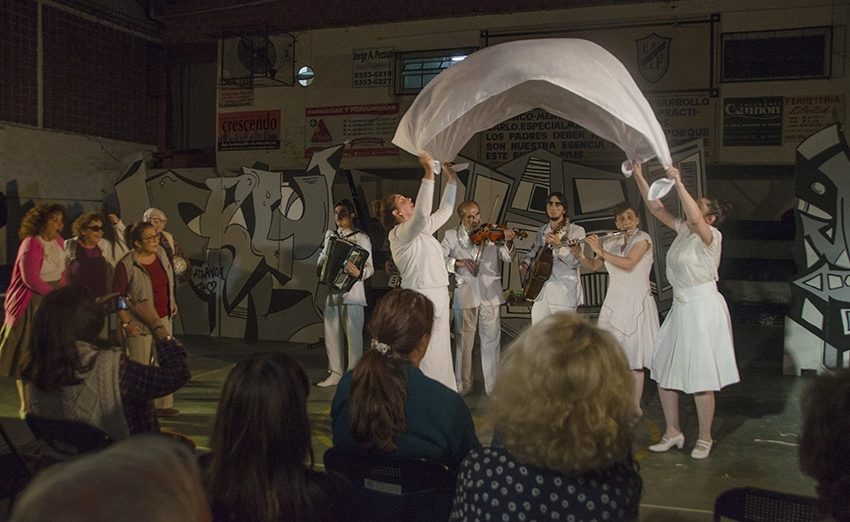
Injured Neighborhood. The Tablecloth Signs. Matemurga, Villa Crespo, Buenos Aires. December 3rd, 2016. Photo credit Alrberto Siniawski
Live musicians perform on one side of the stage, and the music is very nostalgic; they play parts of classical Argentinean tangos and waltzes. Matemurga began as a neighborhood chorus, a detail that explains the excellent group singing. Stressing the communitarian character of this theatre, Edith Scher, the director of Matemurga, took time just before the start of the play to teach the audience some of the refrains of the main song, allowing them to sing and participate in the celebration.
The play is very emotional for the people who had lived in Villa Crespo, or in other similar neighborhoods, especially if they lived there before the demolition of the antique houses to make way for modern apartments: it is about the recent past of the city and the radical changes that impact their daily lives and memories.
The lyrics of the songs are poetic, and we can see tears all around: “The scents of childhood are singing / the flavors and the tablecloth sing / we all sing today, and the street / toasts for the rite of eating.” The music is playful and full of joy, too: “The onions creak / they jump in the pot / this stew is already cooked / our block dines / and today is celebrating / because tonight / the block has joined all of us together.”
In this production, as in every production of the theatre celebration is then complete.
It was a marvelous night with warm weather and clear summer skies, surrounded by tall green trees, accompanied by the joy and participation of more than two hundred people. The group will start again next year, after February 2017, when I am sure we will enjoy their productions again.
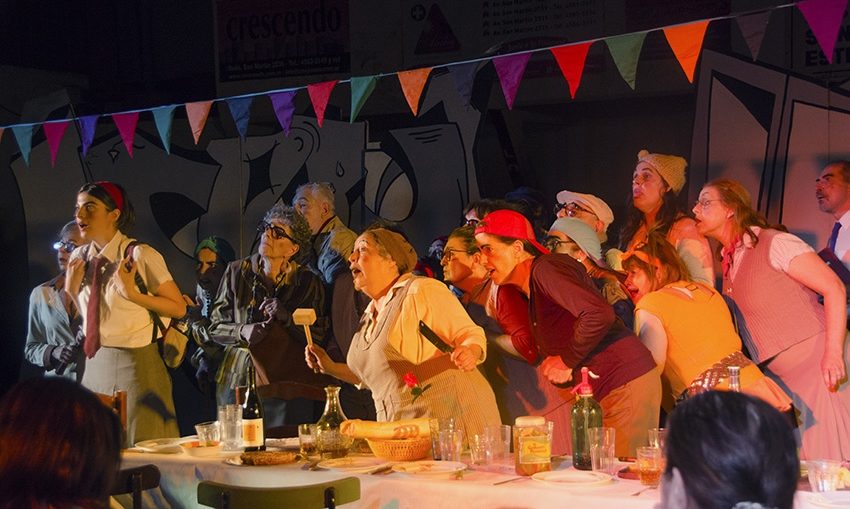
Injured Neighborhood. Signing at the Dinner Table. Matemurga, Villa Crespo, Buenos Aires. December 3rd, 2016. Photo credit Alrberto Siniawski
This post was written by the author in their personal capacity.The opinions expressed in this article are the author’s own and do not reflect the view of The Theatre Times, their staff or collaborators.
This post was written by Lola Proaño Gomez.
The views expressed here belong to the author and do not necessarily reflect our views and opinions.

